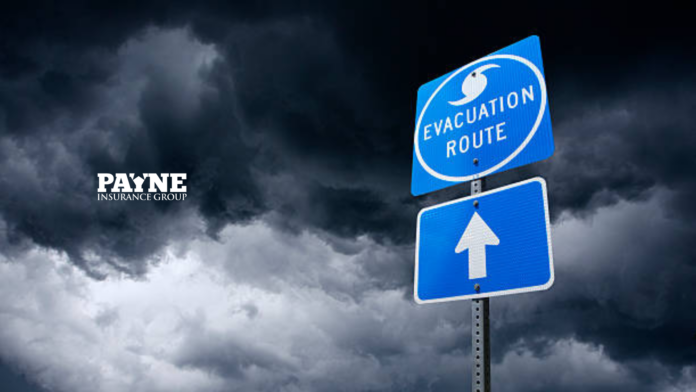Emergencies can strike at any time, and being prepared can make all the difference. At Payne Insurance Group, we believe in the importance of planning ahead to ensure the safety and well-being of you and your loved ones. Here’s a comprehensive guide to help you create an effective emergency plan:
1. Create an Emergency Plan
Evacuation Routes:
Identify multiple evacuation routes from your area. Familiarize yourself with the quickest and safest ways to leave your neighborhood, considering potential obstacles. Knowing where local shelters are located can also be crucial, especially during hurricanes or other large-scale emergencies.
Destination:
Decide on a safe place to go in case of evacuation. This could be with friends or family in a safer area or at a designated shelter. It’s essential to have a backup plan in case your first choice is unavailable.
Communication Plan:
Establish a plan for staying in touch with family members during an emergency. Choose a meeting place where everyone can gather if separated, and ensure everyone knows how to check in. Consider using text messages or social media to communicate, as these may be more reliable than phone calls during a disaster.
2. Build an Emergency Kit
Having an emergency kit ready can provide essential supplies when you need them most. Here’s what to include:
Basic Supplies:
- Water: One gallon per person per day for at least three days.
- Non-perishable food: Enough to last at least three days per person.
- Manual can opener: To access canned foods if the power is out.
- Flashlight and extra batteries: For light and safety.
- First aid kit: To treat minor injuries.
Important Documents:
Keep copies of important documents in a waterproof container. This includes insurance policies, identification (such as driver’s licenses or passports), and bank account records. These documents can be crucial for recovery efforts after an emergency.
Personal Items:
Don’t forget personal hygiene items like soap, toothpaste, and sanitary supplies. Include clothing, blankets, and other items that can provide comfort during a stressful time. If you have infants or pets, pack additional supplies like formula, diapers, or pet food.
3. Stay Informed and Insured
Weather Alerts:
Stay updated on local weather conditions by turning on weather alerts on your phone or keeping a battery-powered radio handy. This ensures you’ll receive updates even if the power goes out.
Emergency Numbers:
Compile a list of emergency contacts, including local emergency management offices, hospitals, and utility companies. This list should be easily accessible to all household members.
Insurance Coverage:
Review your homeowners or renters insurance policy to ensure it covers hurricane-related damage. Understanding your coverage can help you recover more quickly after a disaster.
By following these steps, you can help protect yourself, your family, and your property. Remember, preparedness is key to staying safe during emergencies. At Payne Insurance Group, we’re here to help you navigate the complexities of insurance and ensure you’re covered when it matters most. Don’t wait until disaster strikes—get a free insurance quote from Payne Insurance Group today and ensure you’re fully prepared for any emergency!
















